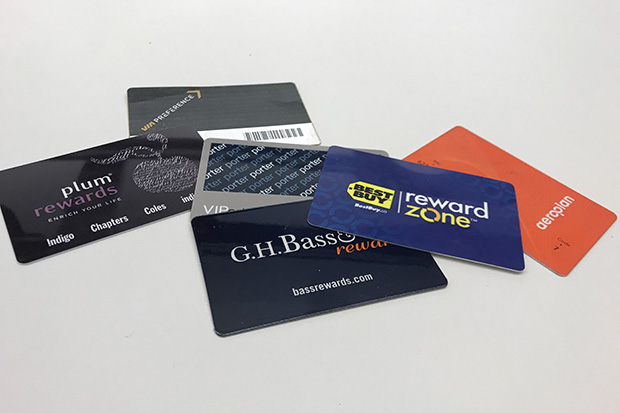Retail reward programs: Consumers get the points. But are they getting the point?
Responsible citizenship is digital as well as physical, says university researcher
March 22, 2018

An information security researcher at the University of Ontario Institute of Technology says consumers need to think carefully about signing up for loyalty reward programs and to monitor the information they give to companies.
Stephen Marsh, PhD of the Faculty of Business and Information Technology is a ‘trust scientist’ who explores the intersection between consumer behaviour, human social values and advanced information.
“Consumers need to realize that loyalty cards are not a product; rather, consumers themselves are a product for the loyalty program,” says Dr. Marsh. “Shoppers are getting the points, but are they getting the point? Beyond getting you to be loyal to a given store or product, the value of the data retailers gain about purchasing patterns and personal preferences far outweighs the cost of the ‘free’ goods they shell out.”
On March 22 news reports surfaced that some PC Optimum points program members had lost large sums of their points to malicious hackers.
Dr. Marsh says while organizations have a responsibility to protect the data we entrust to them, security as a process, is challenging.
“Consumers and companies have to protect themselves all the time. Attackers only have to be successful once. It’s a game of cat-and-mouse. We are stuck in an arms race of sorts, between data security experts and skilled hackers.”
No one is really forcing individuals to share their information. People do it because they think they are getting something back, says Dr. Marsh. But the fallout from shared and stolen information can be very serious, with personal and/or financial implications.
“Simple advice: don’t give away what you are not prepared to lose. Weigh the costs and benefits and make informed choices. And yes, take the time to read the fine print. Get credit protection or at least credit monitoring (many credit cards or banks provide it free) and keep track of your detailed credit rating, which normally can be done annually for free.”
What about the allegations swirling around the Facebook data scandal?
“The only surprise is that Facebook users are surprised that their data can easily be shared,” says Dr. Marsh. “It isn’t so much a breach of trust; rather, it’s an example of what the system was set up to do in the first place: collect massive amounts of personal data.”
“Responsible citizenship is now digital as well as physical. What might an insurance company say today if our car was stolen when we left it unlocked? What, in the future, might they say if our identity was compromised, but we had put everything out there on Facebook or any other digital medium?"
Media contact
Bryan Oliver
Communications and Marketing
Ontario Tech University
905.721.8668 ext. 6709
289.928.3653
bryan.oliver@uoit.ca



